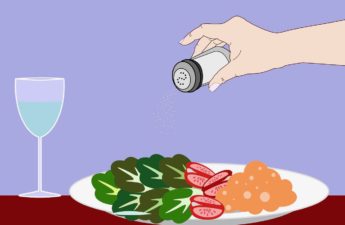Category: Nutrition
Protein is being added to yoghurt, bread and even coffee – but is it really good for our health?
While protein is certainly important for our health, most of us don’t need these protein-enhanced foods as a regular feature in our diet.
Is TikTok right? Do I need to eat more protein?
In the ever-changing wellness industry, one diet obsession has captured and held TikTok’s attention: protein. But is all this extra protein as beneficial as it’s made out to be? How much protein do we really need?
Midlife eating patterns tied to health decades later
People who ate healthier diets in midlife were more likely to live into their 70s without major chronic disease.
The paradox of weight loss: why losing pounds may not always lead to better health
research indicates that significant weight loss – greater than 10kg – can actually increase the risk of early death in obese people with cardiovascular disease.
A brief guide to vitamin and mineral supplements – when too much of a good thing can become toxic
Here’s what you need to know about the benefits and risks of some of the most common vitamins and minerals.
How long will you live? New evidence says it’s much more about your choices than your genes
A new study’s findings come down very clearly on the nurture side in the “nature versus nurture” debate. It suggests environmental factors influence health and longevity to a far greater extent than genetics.
Short-term dietary changes can lead to obesity, shows research
Surprisingly, even short-term consumption of highly processed, unhealthy foods can significantly reduce insulin sensitivity in the brains of healthy people. This effect persists even after returning to a normal diet.
Eating disorders don’t just affect teen girls. The risk may go up around pregnancy and menopause too
Eating disorders and body image concerns are most common in teenage girls, but their prevalence in adults, particularly in women, aged in their 30s, 40s and 50s, is actually close behind.
Many gluten-free foods are high in calories and sugar, low on fiber and protein, and they cost more − new research
Currently, many gluten-free products lack dietary fiber, protein and essential nutrients. Manufacturers often add supplements to compensate, but the incorporation of dietary fibers during processing can hinder protein digestion.
In addition, gluten-free products generally contain higher sugar levels compared with other products containing gluten. Long-term adherence to a gluten-free diet has been associated with increased body mass index, or BMI, and nutritional deficiencies.
3 statistical stuff-ups that made everyday items look healthier (or riskier) than they really are
When statistical mistakes are made and found, it can have profound impacts on people who may have changed their lifestyle as a result of the flawed study.
Are eggs good or bad for our health?
You might have heard that eating too many eggs will cause high cholesterol levels, leading to poor health.
Researchers have examined the science behind this myth again, and again, and again – largely debunking the claim.
A new study suggests that, among older adults, eating eggs supports heart health and even reduces the risk of premature death.
Want to live longer and save money? Online app can help calculate your benefits from cutting back on alcohol
Timothy Naimi, University of Victoria and Peter Butt, University of Saskatchewan Dry January is a time when many people think about taking a break from alcohol and giving their liver a rest. But what does that look like in terms…
Some vegetables are pretty low in fibre. So which veggies are high-fibre heroes?
Many people looking to improve their health try to boost fibre intake by eating more vegetables.
But while all veggies offer health benefits, not all are particularly high in fibre.
You can eat loads of salads and vegetables and still fall short of your recommended daily fibre intake.
So, which vegetables pack the biggest fibre punch?
Why the WHO has recommended switching to a healthier salt alternative
the main lower-sodium salt substitute is called potassium-enriched salt.
This is salt where some of the sodium chloride has been replaced with potassium chloride. Potassium-enriched salt benefits our health by cutting the amount of sodium we consume, and increasing the amount of potassium in our diets.
Both help to lower blood pressure. Switching regular salt for potassium-enriched salt has been shown to reduce the risk of heart disease, stroke and premature death in large trials around the world.
Nutrition advice is rife with misinformation − a medical education specialist explains how to tell valid health information from pseudoscience Aimee Pugh Bernard, University of Colorado Anschutz Medical Campus The COVID-19 pandemic illuminated a vast landscape of misinformation about many topics,…














